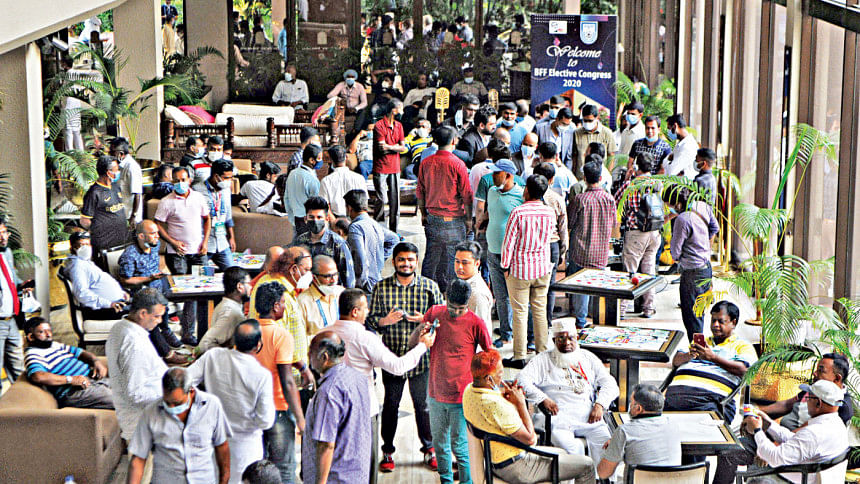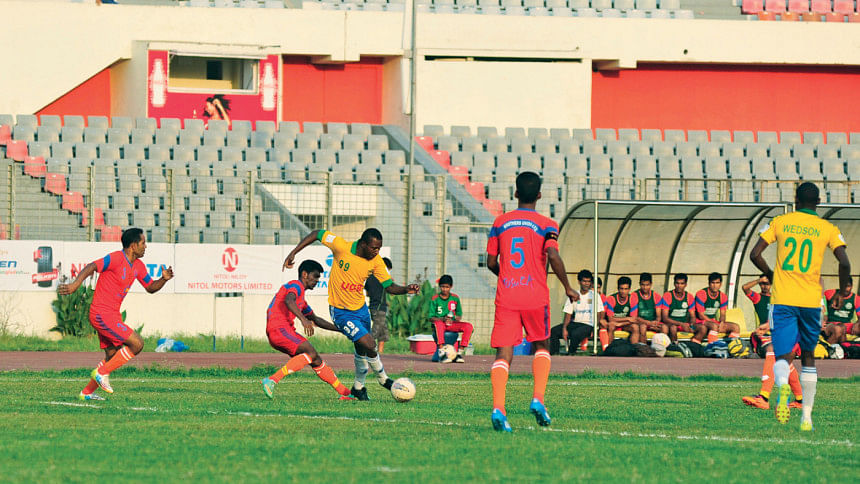A fourth false dawn?

In the late hours of Saturday, following an exhausting-yet-satisfying BFF Elective Congress when Kazi Salahuddin, surrounded by his jubilant panel members, announced to media that he "would work together with those from the opposition panel for the love and betterment of football", one could not help wonder whether he was speaking from a script from 12 years ago or, for that matter, eight or even four years ago.
Salahuddin usually is a very good speaker, not that he speaks too much in front of media but when he does, he makes his point eloquently and precisely. Unfortunately, his actions often fall way short of his words, for we have seen, time and again, his committees not working together, at least not in harmony and with consensus.
Over the last 12 years that the iconic footballer has been leading Bangladesh football, we have seen a number of seasoned organisers either leave his side or being disposed of over difference of opinion. There is a long list of powerful names in the unwanted list, the last of which is Badal Roy.
Saturday night saw Salahuddin winning the election for the hot seat for an unprecedented fourth time, each victory more convincing than the preceding one, yet there is little conviction among the masses and even less so among the football fraternity that there will be any paradigm shift in the ways the game is run in the country.
This latest victory is perhaps one of the easiest ones that the 66-year-old organiser had to navigate. There never was any competition there since Tarafder Ruhul Amin, an industrialist-turned-organiser and one-time ally of Salahuddin, left the scene at the latter stage of his campaign following four years of investment and politicking. What prompted the shrewd businessman to make an abrupt exit following years of investment? It is anybody's guess.
And Tarafder's was not the first late exit from the election scene.

Coming back to Badal Roy, the iconic midfielder of a great Mohammedan side is still a very popular figure in footballing circles, and he could still make a great candidate for the president's post, except that he was never meant to be a candidate. It was out of sheer frustration at the powers that be and the absence of a willing candidate that the long-time ally of Salahuddin chose to be his rival. His constant change of stance due to "pressure from some quarters" compromised his chances to a great extent.
The third candidate, Shafiqul Islam Manik, the coach who wished to be the president, did not have any organisational credentials to begin with. He was just a "dummy candidate" as one would expect to see in any election so highly politicised and influenced by financial muscle.
What is gone is gone, though, and what happens next is of greater importance to those who care about the game and are frustrated at the state of affairs. It was not supposed to be like this.
When Salahuddin came to power at the BFF, winning a popular mandate in 2008, it was a transitional point in time, not just for football but for the nation as a whole. Football was at one of its lowest points due to years of poor governance and lack of vision; hence there were obviously lots of expectations surrounding Salahuddin. His iconic image and promises of a new dawn had the corporates running to the corridors of the once-shabby Motijheel building with bags of money. But that dawn never came, thanks to the lack of a proper plan and cohesiveness within the team. Salahuddin's personal charm was working no more, fading to a degree that the corporates dared not even think of football anymore.
Thanks to the fund provided by the world bodies of football, the game at the national and club level is still functional, but the dream of revival of its popularity still remains distant.
The beautiful game as we call it, after all, is a team game, both on and off the field. One may win an odd game due to individual brilliance, but to make winning a habit a team needs to have a well-drilled squad, marshalled by an astute manager. Great tacticians often fail in their pursuits if they cannot ensure a cohesive work environment.
And that is probably one oft-overlooked aspect which Salahuddin, a great player in his day and a decent manager too, has failed to ensure, leading to false dawns over the last three terms.
As arguably the greatest ever Bangladeshi footballer takes charge for a fourth term with greater power bestowed in the form of a sweeping victory, it would be worth observing whether the greater power leads to greater responsibility or more false promises.

 For all latest news, follow The Daily Star's Google News channel.
For all latest news, follow The Daily Star's Google News channel. 



Comments